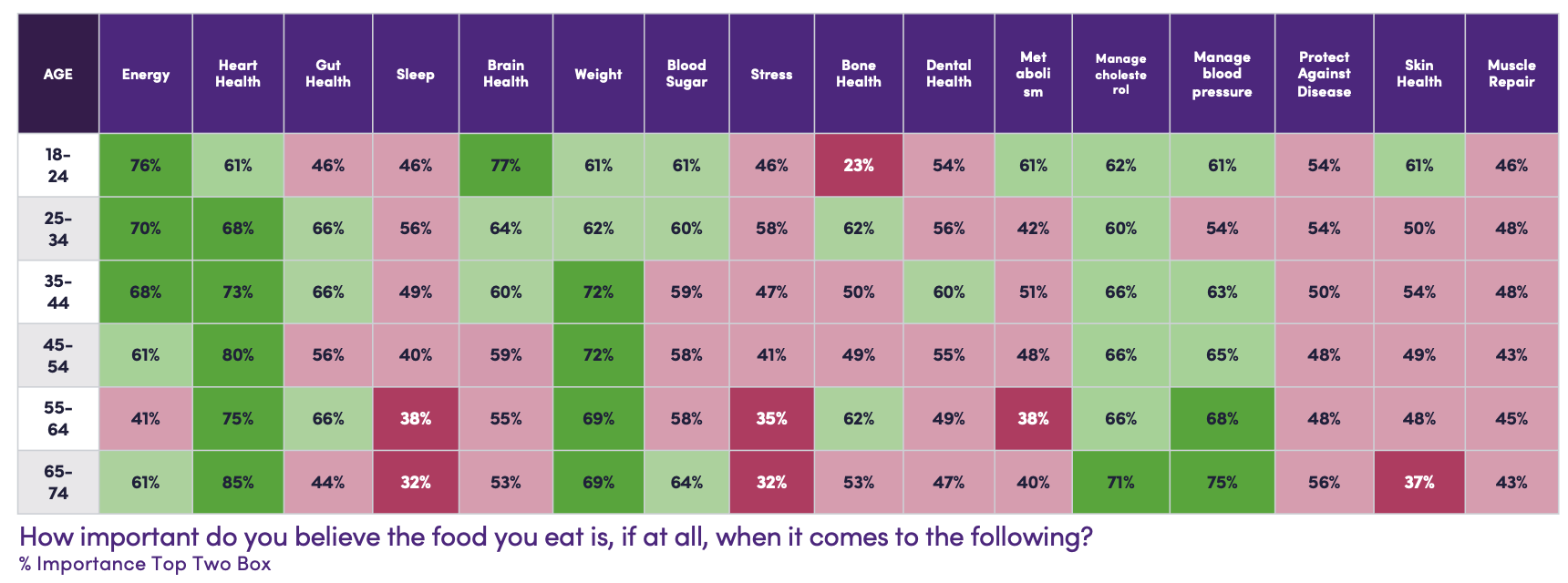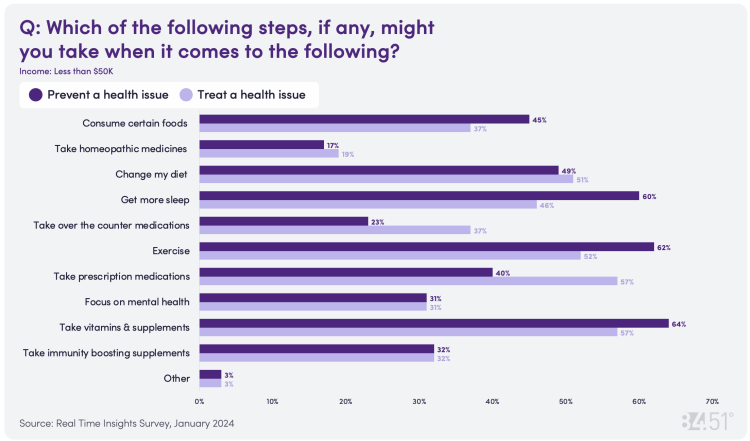
‘Food as medicine’ shopper perceptions unpacked

Global health concerns and rising healthcare costs have prompted many consumers to give more thought to maintaining their health. From becoming more active and drinking more water to rethinking their diets and focusing on mental health, they’re incorporating new habits to help them feel better and live longer. A recent edition of the Consumer Digest offers insights into the types of food shoppers consider important to their health, and where food fits in among the steps they might take to prevent or treat a health issue.
Functional food
Amid a growing awareness about the health benefits of certain foods, our research found that when it comes to the functional benefits of food, managing heart health, weight and cholesterol are the most universal concerns by all age segments.
Consumers understand that the food we eat can have an impact on the risks associated with heart disease. They also make connections between the effects of food on how we feel, both physically and mentally. More than half of customers also recognize the association between diet and managing blood sugar.
Overall, when asked to rate how important they feel the food they eat is when it comes to different health aspects, shoppers of all ages said food is the most important (Top 2 Box) to :
Heart health 76%
Manage weight 70%
Manage cholesterol 66%
Manage blood pressure 65%
Energy 63%
Brain health 60%
Gut health 59%
Manage blood sugar 60%
The health factors customers feel are affected by food the least include reducing stress, improving sleep and muscle repair.
Taking action with nutrition
Our research also revealed that the perception of food as medicine carries over into shopper behaviors when they’re trying to manage health issues. While many customers take vitamins, supplements and medications for preventative health and treatment of various conditions, food is also an important part of that equation.
Nearly half (49%) of shoppers of all ages say they consume certain foods to prevent a health issue, while only slightly fewer (44%) consume foods as a form of treatment when they’re experiencing a health condition. Those numbers dropped, however, in households with an income of less than $50,000 (see chart below). Among those shoppers, 45% say they eat certain foods in an effort to prevent a health issue, and 37% look to certain foods to treat a health issue.
As health researchers continue to identify the benefits of certain foods, shoppers will keep looking to store shelves for groceries they feel can help them live happier, healthier lives. For more insights on consumer attitudes and perspectives on how food supports health and wellness, read the full Consumer Digest report.
Visit our knowledge hub
See what you can learn from our latest posts.



![[DO NOT DELETE] 8451-PR header 4000x2000 shutterstock 2146084959 po](https://images.ctfassets.net/c23k8ps4z1xm/CUmZcselsJUhnLz6rQuj2/0e48394e72423bb1073bf8bb6cf75974/8451-PR_header_4000x2000_shutterstock_2146084959_po.jpg?w=328&h=232&fit=fill)